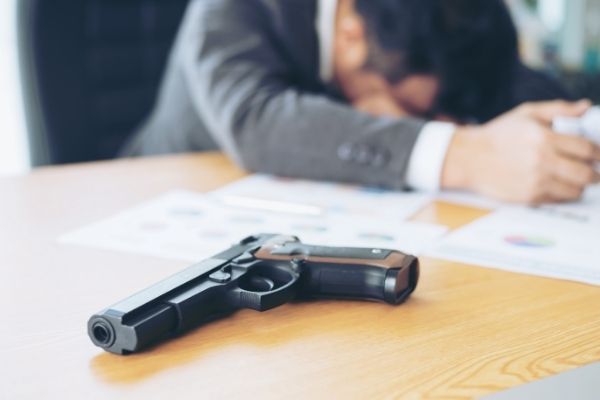After being released from prison, felons often struggle to re-enter society. Many rights people take for granted are lost upon the conviction of a felony and may never be returned. These rules vary on a state-by-state basis. The right to own firearms is likely the most problematic of those lost.
In North Carolina, the Felony Firearms Act (Article 54A § 14-415.1) states that if you have been convicted of a felony in North Carolina or have been convicted of a similar crime in another state, you are no longer allowed to own a firearm. The only way this right is not lost is if the felony conviction pertains to antitrust violations, unfair trade practices, or restraints of trade. Also, if you are not convicted, but are instead acquitted of certain crimes by reason of insanity, the right to own firearms is also lost.
The only firearms felons can own are antique firearms (as defined by NCGS G.S. 14-409.11.). Antique firearms are firearms manufactured on or before 1898 or replicas of such firearms (if the replica is not redesigned to use more modern ammunition). This essentially means that a felon can inherit or buy guns that were either used or are equivalent to those used in the Spanish American War, Civil War, or any earlier war, but cannot own firearms that could only have been manufactured after 1898.
Without getting a pardon, the only way to have your right to own firearms restored is if the conviction is for a single nonviolent felony. You can petition the district court in which you live to restore this right and the court may restore your right to own firearms if it has been 20 years since you have had your civil rights restored under Chapter 13 of the North Carolina General Statutes (or the equivalent in the jurisdiction where the felony occurred), you has been convicted of no other felonies or misdemeanors since the conviction, and you are not otherwise disqualified from having your firearm rights restored (such as being a fugitive from justice, an unlawful user of controlled substances, or being dishonorably discharged from the Armed Forces of the United States).
As pointed out earlier in this post, every state has different rules and before you attempt to purchase a firearm it is it is highly encouraged to contact a lawyer. If you attempt to purchase a firearm after committing a felony and have not done what your state requires, you risk committing another crime that can put you back in prison.
King Law Offices is a full-service law firm with an outstanding team of professionals who work diligently, creatively, and compassionately on behalf of our clients each day. Contact King Law and let us help you at 888-748-KING (5464) or by filling out our consultation form. We have offices located across western North Carolina and upstate South Carolina. We are here to serve you and to guide you as we navigate this journey together.


